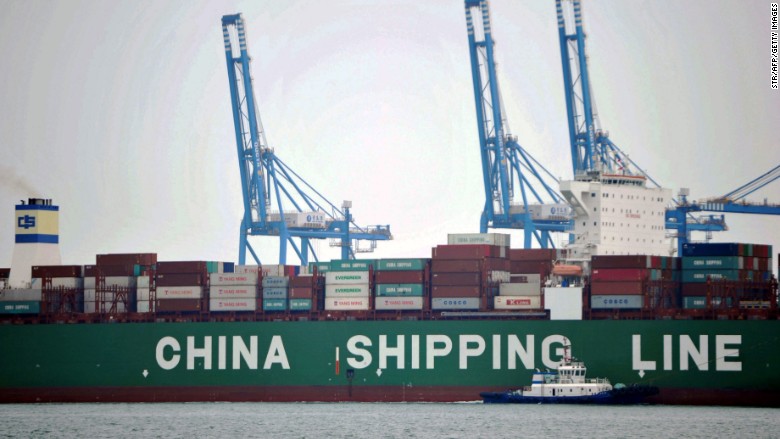On July 18, China claimed that it would stop taking foreign shipments of waste goods, such as plastic and paper, from foreign countries.According to a Reuters report, China wrote in a statement to WTO that “to protect China’s environmental interests and people’s health, we urgently adjust the imported solid wastes list, and forbid the import of solid wastes that are highly polluted.”
An BloombergView article said China has practiced imports of trash for more than 30 years, and it is a significant contributor to the rise of the Chinese economy. The Chinese environmental authorities estimate that more than 5,000 tons of garbage imported every year. The CNN Money calls it “a $5 billion annual business that is now in danger of sinking.” However, this is not a new trend. In 2013, the Chinese government launched “Operation Green Fence” Program to block imports of illegal and low-quality waste through improved inspections of container ships. In February 2017, Chinese customs officials initiated “National Sword” program to reduce illegal shipments of industrial and electronic waste. According to Resource Recycling Inc, in 2013, it costs about $2,100 per container that was rejected by China and shipped back to Los Angeles/Long Beach port.
The idea of shipping trash to China originates the balance of trading and maybe also the thought that the United States should not let empty ships going back China. Thus, America fills the return-trip containers with recycled cardboard boxes, waste paper and other trashes. The Economist said it is a double-win solution. It said America can earn a return from their waste, while China can have a constant supply of cheap recycled materials.

However, the issue is the quality of trash.
“We found that large amounts of dirty wastes or even hazardous wastes are mixed in the solid waste that can be used as raw materials. This polluted China’s environment seriously,” China’s WTO filing said. The Chinese government criticized Americans for not separating trashes ahead , and the Chinese government said failing to handle trash separation in the United States increases pollution in China.
On the other side, the critics said most of the waste consumed by China’s recycling industry comes from domestic sources, not imports. Adam Minter, the author of “Junkyard Planet”, wrote in an article on BloombergView this July to argue that China’s government has long played up stories about foreign waste, partly to deflect attention from unmanageable garbage problems at home.

Who will be the loser in this trash ban? The answer is everyone, including China, America, the environment, and global economy.
It is for sure not a good news for Americans. Jeff Harwood, an Olympia-area recycling center manager in Washington, tells Washington state’s KIRO-TV in 2013 that the problem is American does not have market for recycling goods. It is still true today. Minter claims that “on average roughly one-third of the stuff that’s tossed into U.S. recycling bins can’t be made into new products domestically.” Moreover, Winter wrote in his book that in Foshan, China, the salary of a recycling worker is 100 dollar per month plus rooms and boards. The cost of recycling process would be much more expensive in America. He also claimed that it is cheaper to ship trashes from America to China than to transport them from Los Angeles to Chicago through railway.

It also has potential to hurt Chinese economy. For China, The trade of trash imports is a more than half of the $1 billion a year business to recycling industry. Although China today is not as eager to recycling materials as it was decades ago, the ban still will drastically decreases the demand. Minter wrote in July that imported recyclables are cleaner than their Chinese counterparts, and banning them will force many Chinese recyclers to shut down and thousands of workers losing jobs. Moreover, recycling materials imported from America is also much cheaper than the ones in China. As the Chinese economy still heavily rely on manufacture, the ban might also causes the rise of goods.
The ban might could not even protect the environment or improve the public health. As China bans its trash imports, its 29 million tons of paper and 7 million tons plastic scrap still need to find place to go. They might end with landfill that does not have effective recycling ability as China has.
At the last, the ban will also affects the price of paper and plastic globally. It would be “chaotic for the global recycling industry,” said Bill Moore of Moore & Associates, an Atlanta-based paper recycling consultant.
“Mixed paper prices would plummet in the U.S., North America and in Western Europe because all the mixed paper we’re pumping out in residential [programs] would have no home,” Moore explained. “So that would be chaotic at the local government level, at the MRF level, at the collector level. It would be complete disruption.”


Leave a Reply
You must be logged in to post a comment.